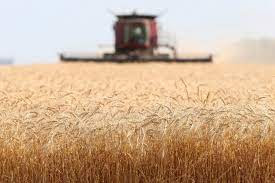As the worldwide populace keeps developing, the strain on our rural frameworks to reasonably create sufficient food to care for everybody is increasing. The world is wrestling with the difficulties presented by environmental change, reducing normal assets, and expanding food uncertainty. Even so, there is trust as upgraded supportability in cultivating rehearses, which can assume an essential part in decreasing the approaching food emergency. Ranchers can limit ecological effects, increment efficiency, and guarantee long-haul food security by taking on imaginative methods and innovations. This article investigates the view of Benedict t palen Jr by which improved sustainability in cultivating can address and lighten the worldwide food emergency.
Conservation of agriculture and soil health
Upgraded sustainability in cultivating starts with
focusing on soil wellbeing. Preservation horticulture practices, for example,
insignificant culturing, cover trimming, and harvest revolution, assist with
forestalling soil disintegration, hold dampness, and further develop
fruitfulness. By safeguarding soil quality and construction, ranchers can help
crop yields while limiting the utilization of manufactured manures and
pesticides, eventually lessening ecological contamination and water defilement.
Precision farming and resource optimization
Progressions in innovation have altered cultivating
through accuracy horticulture. Utilizing GPS, robots, and sensors empowers
ranchers to unequivocally oversee sources of info like water, composts, and
pesticides. Ranchers can decrease squandering, lower creation costs, and
alleviate natural effects by advancing asset allotment. Accuracy cultivating
additionally works with information-driven independent direction, permitting
ranchers to respond to changing climatic circumstances and amplify yield
potential.
Agroforestry and biodiversity conservation
Incorporating trees and yields on farmland through
agroforestry frameworks offers various advantages. Trees give conceal,
safeguard against wind disintegration, and improve biodiversity by making
natural surroundings for gainful bugs and birds. Agroforestry can likewise
differentiate ranchers' revenue streams by consolidating lumber, natural
products, or nuts into their activities. Moreover, this training sequesters
carbon dioxide relieves environmental change, and adds to the general
supportability of cultivating frameworks.
Water management and irrigation efficiency
Water shortage is a squeezing worry for farming,
especially in districts inclined to dry season. Improved maintainability in
cultivating requires the reception of productive water system methods. Accuracy
water system frameworks, like dribble water systems or soil dampness sensors,
limit water squandering and guarantee that harvests get the expected water
measure with impeccable timing. Carrying out water-saving advances can help
ranchers reasonably oversee water assets, increment water-use productivity, and
relieve the effect of water shortage on food creation.
Organic farming and reduced chemical inputs
The shift towards organic farming practices has gained
traction due to its potential to reduce the use of synthetic fertilizers and
pesticides. Organic farming relies on natural methods, such as crop rotation,
composting, and biological pest control, to maintain soil health and protect
crops. By minimizing chemical inputs, organic farming promotes environmental
sustainability, safeguards human health, and contributes to producing
healthier, nutrient-rich food.
The conclusion
The world faces the daunting challenge of providing
food security to a growing population while minimizing environmental
degradation. Enhanced sustainability in farming offers a promising pathway to
address this crisis. By embracing conservation agriculture, precision farming,
agroforestry, water management, and organic farming, farmers can increase
productivity, reduce environmental impacts, and ensure the long-term resilience
of our food systems. Governments, agricultural organizations, and farmers must
collaborate to support the adoption of these sustainable practices on a global
scale. Benedict t palen Jr believes that only through such
collective efforts can we hope to build a future where food crises are
mitigated and everyone has access to safe, nutritious, and sustainably produced
food.

No comments:
Post a Comment